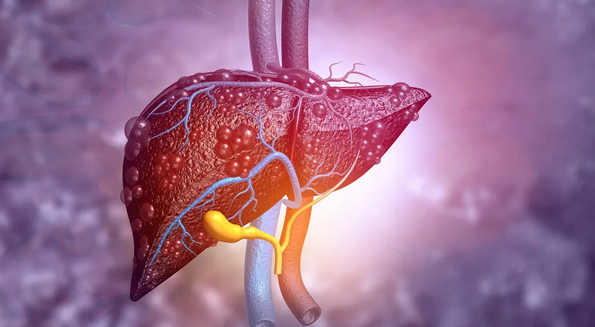What does alcohol do to the body?
Most people who drink alcohol will be familiar with the short-term effects of alcohol intoxication. The mild state of euphoria and feelings of relaxation are among the main reasons why humans have been producing and drinking alcohol for thousands of years, according to “Alcohol: Science, Policy and Public Health” (Oxford University Press, 2013).

Similarly, most people are aware that excessive and chronic drinking can severely impact their physical and mental health. But the exact effects will depend on the amount of alcohol consumed and how frequently someone drinks it.
In the U.S., moderate drinking is limited to two drinks per day for men and one drink per day for women, according to the Centers for Disease Control and Prevention (CDC). One drink refers to an equivalent of 0.6 ounce (14 grams) of pure alcohol. That amount can be found in a bottle of beer (5% alcohol content), a small glass of wine (12% alcohol content) or a shot of distilled spirits (40% alcohol content).
According to the CDC, heavy drinking is defined as consuming eight or more drinks per week for women, and 15 or more drinks per week for a man. This is different to binge drinking, which the CDC defines as consuming five or more drinks on one occasion for men or four or more drinks on one occasion for women.
Short-term effects of alcohol consumption often include feelings of mild euphoria and a state of relaxation. This state is caused by temporary changes to brain signaling, said Sarah Boss, a psychiatrist in Spain and clinical director of The Balance Luxury Rehab, who specializes in addiction.
“Alcohol can interfere with neurotransmitters, which are chemicals that help relay messages between neurons in the brain, leading to changes in mood, behavior and thinking,” she told Live Science.
According to the American Addiction Centers, short-term effects of moderate alcohol consumption may range from skin flushing and trouble concentrating to more severe symptoms, such as vomiting and passing out. Other effects of short-term alcohol use include loss of coordination, mood swings, raised blood pressure, dull vision and lowered inhibitions.

Then comes the effects of alcohol withdrawal, commonly referred to as a hangover. Hangover symptoms usually begin within several hours of a person’s last drink and they tend to vary from person to person. These can include headaches, exhaustion, nausea and dehydration, said Dr. Kathryn Basford, a medical doctor at ASDA online doctor service in England.
“Alcohol inhibits the body’s production of vasopressin, a hormone which tells the body to retain water in the kidneys,” Basford told Live Science. “Without this, water goes directly to the bladder and leaves the body dehydrated. The headache is the brain’s reaction to this loss of fluid, while the nausea and lack of energy is the body’s response to low blood sugar levels and the loss of the minerals and electrolytes which help the body to function properly.”
The more a person drinks, Basford said, the more likely it is that they are going to feel these effects, and the longer a person might take to recover.
Hangover symptoms tend to pass within 24 hours of a person’s last drink and do not tend to produce lasting health problems.
Long-term alcohol consumption can affect many aspects of physical and mental health. According to the American Addiction Centers, the main areas affected include the brain, digestive system, cardiovascular system and musculoskeletal system.
Brain
According to Boss, there’s a lot of scientific evidence to show that alcohol impacts the proper functioning of the brain, namely by affecting levels of neurotransmitters — chemical messengers in the brain.
“You may notice alcohol can cause wild mood swings,” she said. “This is because alcohol interacts with GABA, a neurotransmitter that helps to regulate mood and anxiety.”
Alcohol also works as a central nervous system depressant, Boss said, which means it slows down the communication between the brain and the body. This can lead to impaired coordination, slurred speech, slowed reflexes and blackouts. Heavy drinking can also lead to other problems such as sleep disturbances.
Long-term alcohol use may even lead to changes in the brain’s structure. “Heavy drinking can kill brain cells,” Boss said. “This damage can lead to problems with memory, learning and coordination, as well as increases in anxiety [disorder] and depression.”
Many of these changes in the brain happen on a molecular level. According to a 2021 review published in the journal Trends in Neurosciences, excessive drinking can disrupt gene expression in neurons, a process in which brain cells develop and connect with each other. These adaptations may be a key factor for developing alcohol use disorder, the researchers said.
Heart
Long-term alcohol use will also have an impact on cardiovascular health. According to a 2016 review published in the Journal of the American College of Cardiology, even modest amounts of alcohol may predispose someone to atrial fibrillation — a condition that causes an irregular heartbeat, dizziness and shortness of breath.

How drinking affects heart health may depend on the amount of alcohol consumed, though the evidence is far from conclusive. Some studies indicate that low-to-moderate drinking may actually lower your risk of heart disease and stroke, according to a 2021 review published in the journal Nutrients. However, this is not well understood. A 2017 review published in the journal Alcohol Research suggests that low-to-moderate alcohol consumption may indirectly reduce atherosclerosis — a buildup of fatty plaques in and on the artery walls — and inflammation, as well as mitigate the effects of psychological stress on the cardiovascular system.
Certain compounds found in alcoholic drinks could also play a role. For example, polyphenols found in red wine may protect against atherosclerosis, hypertension and heart failure, a 2016 review published in the journal Nutrients reported.
Digestive health
Excessive drinking can lead to liver damage and alcohol-related liver disease, according to a 2021 review published in the journal Alcohol Research.
Alcohol affects other parts of the digestive system too. A 2014 review in the World Journal of Gastroenterology found that consuming more than five drinks a day can damage the pancreas, esophagus, stomach and intestinal tract.
Long-term alcohol consumption may also lead to poor gut health. According to a 2021 review published in the International Journal of Molecular Sciences, excessive drinking may lead to changes in the gut microbiome, by reducing diversity of microbes and causing an overgrowth of bacteria that promote inflammation, such as Proteobacteria. These alterations may lead to intestinal inflammation and leaky gut — a condition in which the intestinal walls become porous, enabling toxins and harmful pathogens to enter the bloodstream.
Caitlin Hall, chief dietitian and head of clinical research at myota, said that these changes may be harmful to our general health. “One of the most important functions of the gut microbiome is to ferment dietary fibers and produce anti-inflammatory molecules called short chain fatty acids [SCFAs],” she told Live Science. “SCFAs are essential for our immune health, mental wellbeing and for reversing and preventing chronic diseases including diabetes and cancers. Cutting down on alcohol helps ensure that the microbiome can produce enough of these vital molecules."
Immunity
The immune system may also be affected by long-term alcohol use. According to a 2015 review published in the journal Alcohol Research, chronic heavy drinking may lead to a significant drop in the number of white blood cells responsible for combating infections and preventing cancers.
ok
Please use the source from where you collected the images.